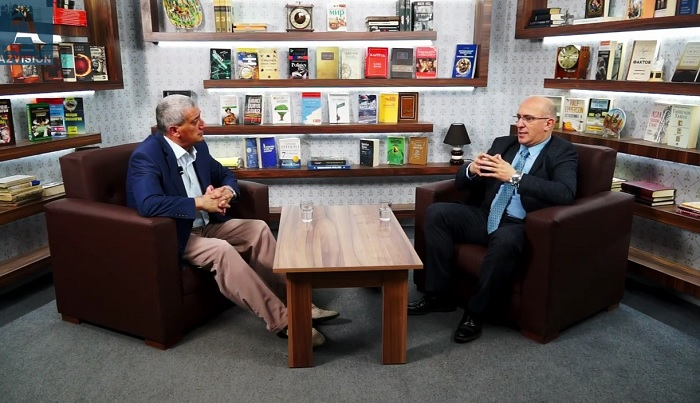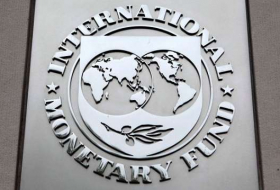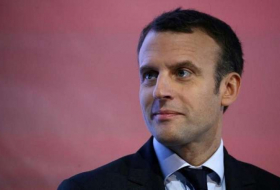The recent negative trends observed in the world economy are the main factors that facilitate global inflation and rapid price hikes. Experts say these trends are both objective and subjective and make various proposals for solving these problems.
Economist Elman Sadigov says in his interview to AzVision.az that there is no universal formula for slowing down global inflation and rapid price surges.
- What steps should the central banks take, as one of the main regulators in curbing inflation? Some experts believe that we should not hesitate to increase money supply at times like this. Others suggest slightly reducing the supply, arguing that this could further aggravate inflation. Experts are also widely discussing accounting rates. Some say they should be lowered, others believe otherwise. What are your views on the matter?
‘Every country has a different economic situation. A formula applied in a given country cannot be blindly transferred to another. The components of the economy, called clusters, vary. The drivers behind the economy are also different. Some countries are resource-oriented, whereas others focus on export. The monetary policies pursued by export-oriented countries are completely different from those implemented in import-focused or import-substituting countries or developing states. The biggest mistake is to ‘copy and paste’ the monetary policy of a neighbouring country. Firstly, it may backfire. Secondly, we are currently experiencing a supply-side inflation. A major hallmark of such inflation is its propagation speed. Demand-pull inflation often means that while money supply grows in one country, it does not necessarily go up in another, therefore somewhat slowing inflation down. On the other hand, the prices for goods under supply-side inflation go up, affecting import costs. Advances in prices for products you import, buy components for, or products imported for consumption further triggers inflation.
This is precisely why, economies around the world pursue individual monetary policies. Unfortunately, there have been many instances when countries produced diverse results, while trying to apply a policy pursued in another country without regard for numerous nuances. Neither Europe nor China can apply the monetary policy pursued by the USA. Europe does not have the same scope for manoeuvring. China did try to pursue a policy similar to America’s in 2008 to 2013, but could not yield the same results, because it had different problems. The root of the matter is that the currencies of some countries are the reserve currencies of the world. They can issue as much money as they want, borrow comfortably, and not be exposed to the risk of exchange rate differences. A country like the US has a zero-devaluation risk. It is almost non-existent because their currency is the dollar. But many other countries must deal with devaluation risk, which means their currency faces a threat of losing value against the reserve currencies of the world. This crucial issue mainly depends on the situation in the balances of payments and trade. Therefore, central banks must consider the conjuncture in their countries, while pursuing monetary policies.
There are many subtleties to monetary policy. Monetary policy is both the most common and complicated ones overall. It is a policy we think we know, but one that is much deeper than we imagine. Some countries choose limitations in their monetary policies, forgetting that that limits are time bound. The concept of time is very important in economics. The same steps you take may yield completely different results in 2020, 2023 and 2025. One should understand that a policy has both advantages and disadvantages, while choosing one. Minimizing the disadvantages requires leading the policy quickly, reaping the advantages to the maximum.’
- The United States, the European Bank, the central banks in Great Britain, Japan and China have been issuing money almost without any restrictions after the 2008-2009 economic crisis. Do you think the current inflation may also be the consequence of such policy?
‘Politics and economics have real reasons and those told to the media. The reasons given to the media include things such as ‘there was a pandemic’ or ‘we released additional money supply to support purchasing power of the population’. There is a grain of truth in them, but they do not reflect the entire reality. The world is entering a new order. The system overall is changing, and alternative energy will become the main factor in the new system. Supporters of alternative energy and the traditional one have been in disputes for years. But the advocates of alternative energy won last year, and they now must spend up to a hundred trillion dollars to implement their projects until 2040. These include building alternative power plants, creating infrastructure, applying technologies, developing and improving solar panels. The 3.1-trillion-budget of the US Federal Reserve System (FED) did not suffice to release this much money. FED had to increase the budget, so it did and should continue doing so. In any case, they have hit pause at the moment.
The FED has substantially increased the budget. Then, why does the world still have a certain dollar shortage? Or why hasn’t either the value or the price of the dollar fallen? Opponents may argue that the value of the dollar has indeed fallen because of the hike in commodity prices. That is not the case. The purchasing power of the dollar shows that it has not lost value. A further decrease in the value of the dollar did not cause those price hikes or, in other words, the dollar does not depreciate in relation to commodities. The reasons behind the increase in commodity prices are different. The changes the world is now experiencing will stay with us until 2030.’
- The fantastic price booms for traditional energy carriers, especially natural gas, has greatly pressured production and consumption. Is it the peak or should we expect more challenging times ahead?
‘If we ask ourselves whether we will face any difficulties with gas, considering the global economy as a whole, we will probably think ‘no’. Because the world has more gas than the population and industry need, in countries like Qatar for instance. The problems with gas are purely a matter of infrastructure and logistics. The Syrian crisis delayed pipelines and other projects, making Europe more dependent on Russian gas. As the events in Ukraine turned the tap off on gas from Russia, Europe found themselves deep in problems. The conflict also increased gas prices worldwide. But how long will it last?
The entire world sees it as a transitory, temporary factor. If the global economy can solve an issue in 1 to 2 years, it is not considered a crucial one. Which is why, the countries are comfortably replenishing their stocks, thinking that everything will be fine if they overwinter. Industry plays the biggest part in this factor. The driver of the European economy is Germany, who depends on Gazprom for 40% of its industry. If Germany overwinters without any grave economic turbulence, they will gradually resolve the gas issue over the following years, minimizing dependence on Russia. Germany is busy building a terminal for receiving liquefied gas. I think if they build another terminal in Spain, Portugal or somewhere else, the liquefied gas from America or Qatar will suffice. Over the following years, as they firstly install more gas lines and secondly go more into developing alternative energy sources, such as boosting efficiency of the solar panels, it will allow them to comfortably shift from gas for heating and lighting.
At the same time, there is renewed interest in nuclear energy. Europe goes as far as considering it an alternative source. They believe nuclear power is something we can control on our own. We can create it ourselves and replace gas efficiently and effectively. Europe will thus manage to comfortable replace the current source they are using, gas, with nuclear or solar power, or gas pipelines from Qatar or other countries in 4 to 5 years. Therefore, we do say that gas will remain a problem for the following 1-2 years, but it will not be considered a grave issue for either global economy or Europe in 5-10 years.’
- One of the biggest issues at the moment is the price hikes for food and even shortage for some. Some countries have even been banned from exporting certain products. Is the situation really that grave, or are these mere speculations?
‘The food issue is not catastrophic. I would not want to inspire negative mood in people regarding food. However, there are certain alarming aspects to the matter. For example, the world suddenly awoke to the fact that two countries have established a de facto monopoly on grain, these being Russia and Ukraine. This by no means has been spontaneous. They might not have even thought about it. There are objective reasons behind it. Agriculture has not been a very profitable field for a long time. The developed countries have therefore been more focused on technology, services, and industry, because there is simply more turnover, income and money in these fields. Ukraine, Russia, and other countries were more engaged in agricultural spheres. They are now realizing that the world is facing truly critical challenges for this reason. However, Ukraine has been slowly exporting its grain to the world through the mediation by Turkey and the UN. We must keep in mind that if a problem is solved at the efforts of any country, this is not in fact considered a serious problem. The country will sooner or later be forced to act. There is no country in the world that can go against the entire world. President Putin also said that ‘we should not be blamed for the food crisis in the world’. The Russian-Ukrainian war may go on for some time. In this case, other countries will slowly compensate for the food these two countries have been providing for the world. However, I do not believe this direction stands in the centre of the main concern.
Food shortage threats are related to climate change. Unfortunately, this problem has still not received the recognition it deserves. We are not sparing enough strength to fight it. The world is preoccupied with smaller issues. Climate change is much more urgent. Europe is facing drought, but nobody is doing anything. There is nothing they can do. Large corn and sunflower fields, lavender plantations are dying, but they cannot do anything about it. I think it is our biggest problem.
AzVision.az Analytical Group
More about:
















































